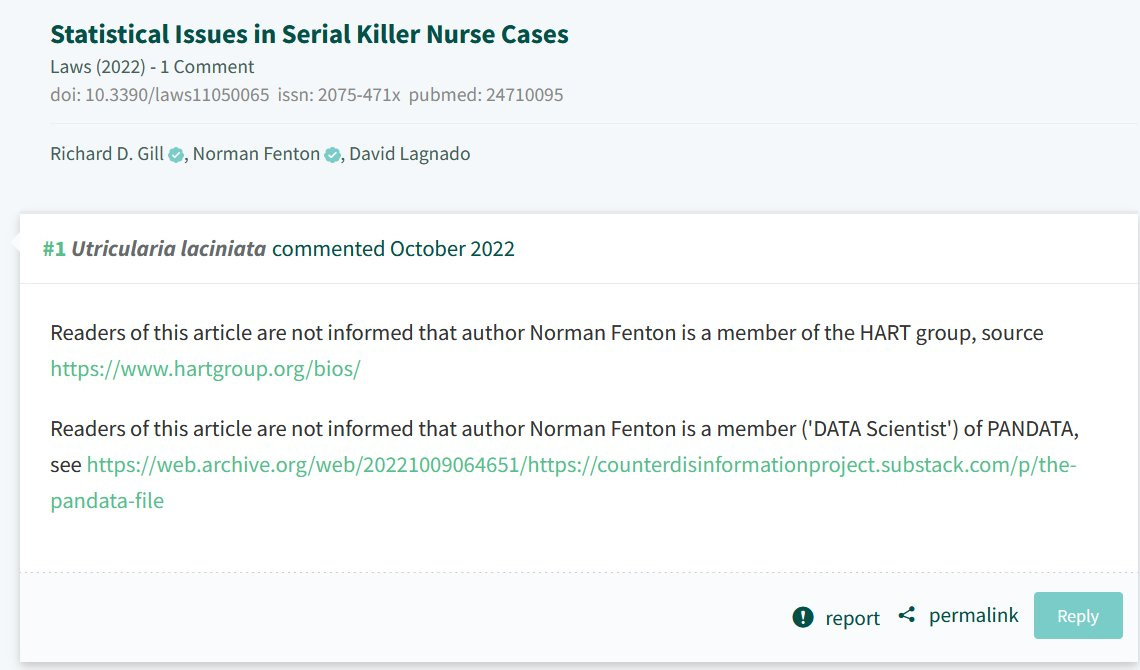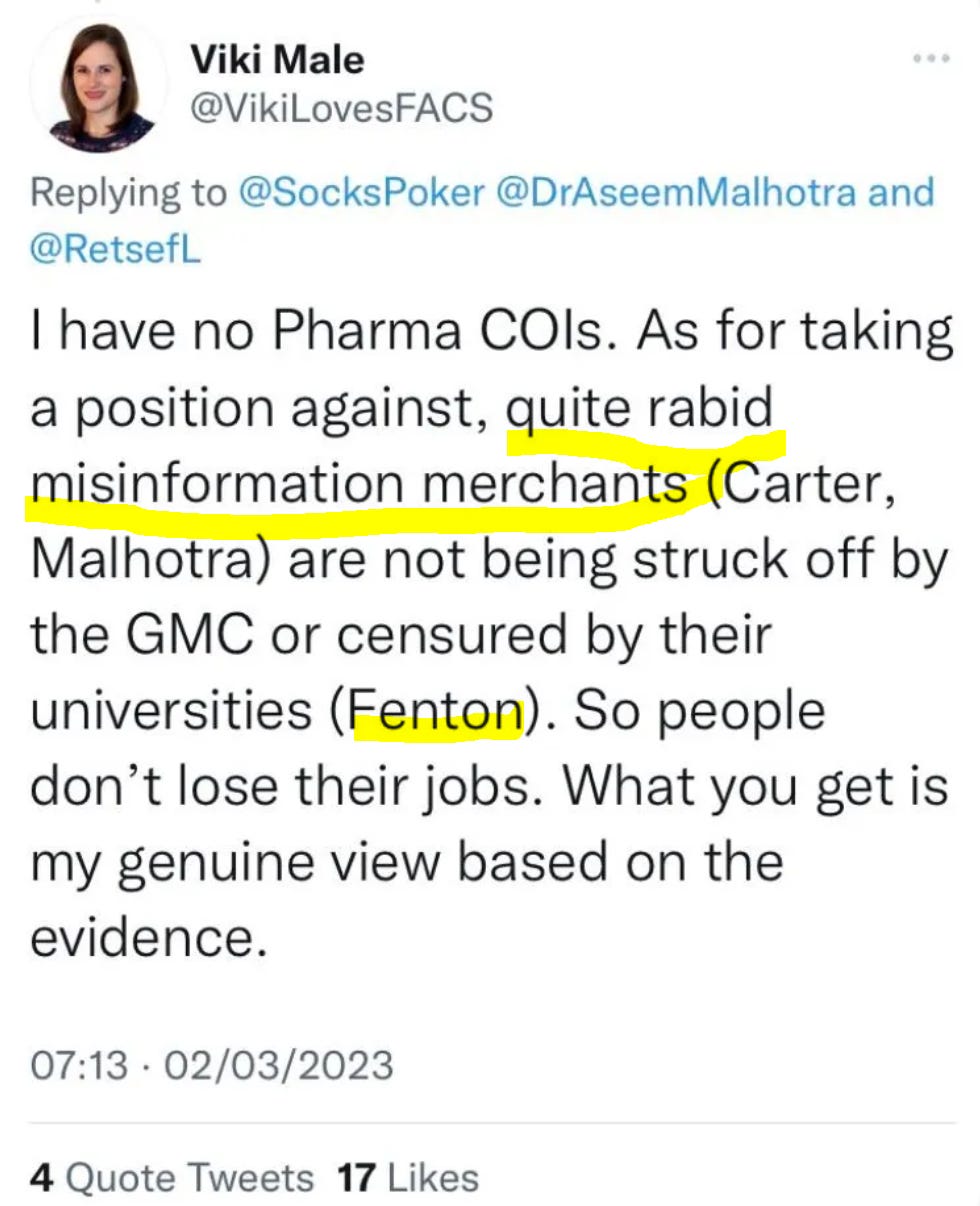Retrospective censorship: the new punishment for covid dissidents
Retrospective censorship: the new punishment for covid dissidents
They're now coming after our pre-covid and non-covid publications
Delegitimising dissent
Those who wish to silence and cancel those who raise concerns about the ‘official covid narrative’ (especially those questioning the ’safe and effective’ vaccines) are resorting to new, more inventive ways, to attack us. Not content to simply ensure that dissenting research papers on covid data never get published, they are now trying to delegitimise published non-covid papers produced by covid dissenters.
A prominent and disturbing example of this is the retrospective attack on Paul Marik and his 2017 paper on Vitamin C and sepsis - an attack clearly chosen to delegitimise Marik simply because he has been a prominent advocate for early treatment protocols for covid. Fortunately, that attack seems to have finally failed. But this is not going to stop the censors who are determined to silence any dissenters.
In the last few months, I have received multiple emails from journals where I had previously published non-covid papers asking me to respond to complaints that I failed to declare conflicts of interest. Invariably these complaints have said that I did not inform readers that I was a member of the HART group or PANDATA.
For example, the complaint, below, is about an article I co-authored, and is one of many similar reports to journals that I have been asked to respond to. the frustrating thing is that rather than ignore this nonsense journals require a formal response, resulting in an exhausting time-suck. And this is the reason why the complainants do it - to grind you down:
The article (which I strongly recommend of course!) was published in August 2022 and has nothing to do with covid or anything related to the activities of HART or PANDATA. Moreover, while I've spoken at PANDA meetings (and certainly admire their work), I am not a 'member'. Indeed, whereas the link provided to HART is to the members list which I am on, the link to PANDATA in the complaint is not to any PANDATA members list but rather to a hysterical hit piece about PANDATA.
So, what should we declare?
If dissenters are now required to declare affiliations to any group to which we belong or whose objectives we approve of, does this mean that I have to declare on each authored paper that I am a Spurs season ticket holder? Or that in my youth I attended meetings of the International Socialists? What about my Amazon prime membership? Or the fact that I own the entire X-Files series box-set? Or that I have seen Les Misérables 53 times in the theatre?
Do science journals still value quality and accuracy?
The fact is that, while I've published over 300 peer-reviewed papers, none of the many dozens I've written about covid data after summer 2020 have even got to the serious review stage when submitted to any journal. For bogus reasons like this:
And, as we have reported before, even the preprint servers refuse to host our papers on covid analysis:
As in the case of our submission to The Lancet nobody ever challenges the accuracy of our work; it is sufficient for them to know ‘who’ is writing it in order to know it must be banned. And, since people like the Government approved spokesperson for jabbing pregnant women tell everybody that I am a ‘rabid misinformation merchant’, that seems to be sufficient ‘evidence’ to reject our work.
When dissident covid papers do get published why are they withdrawn or retracted?
In the very rare cases where papers that seriously challenge the official covid narrative have been accepted or published in a peer reviewed journal, the organised attacks begin instantly. Some of the best-known examples include:
The first published paper highlighting myocarditis risks post-vaccination by Jessica Rose and Peter McCullough was published online in Oct 2021 but then almost immediately (and permanently) withdrawn by the publishers without any explanation provided to the authors.
The paper by Hui Jiang and Ya-Fang Mei which proved that the SARS Cov-2 spike protein stops DNA repair (i.e., induces cancer risk) in lymphocytes. It was only after Jiang admitted that, because the vaccine spike was the same as the virus spike, the vaccine had a real risk of causing cancer-inducing changes in DNA that the demands to retract the paper began - as explained here with details of the scandalous retraction politics here.
The paper by Mark Skidmore which estimated over 200,000 people killed by the vaccines has now been retracted by the journal. The ‘concerns’ leading to the retraction were either easily fixed or bogus, including a claim that there was insufficient ethical approval for the survey on which it was based and failure to declare the views of the person who funded the survey (Catherine Austin-Fitts). Steve Kirsch has announced he is going to mount a legal challenge to this retraction.
Conclusion
For many the covid era has destroyed the trust in many if not all institutions - the government, the pharma industry, the social media giants, and the mainstream media generally. In saner times we would have at least expected academia to rise above the lies and corruption and, especially, the censorship. Yet, academia has spearheaded the censorship of dissenting voices and, by censoring research based on who wrote it or who they are associated with, rather than on its quality and accuracy, any respect for the notion of ‘peer review’ has been destroyed and may never recover.
Source: Where Are The Numbers?





Comments
Post a Comment